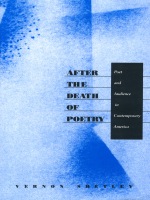
In exemplary case studies, Shetley identifies the very different ways in which three postwar poets—Elizabeth Bishop, James Merrill, and John Ashbery—try to restore some of the challenge and risk that characterized modernist poetry's relation to its first readers. Sure to be controversial, this cogent analysis offers poets and readers a clear sense of direction and purpose, and so, the hope of reaching each other again.
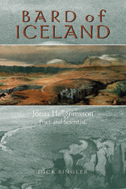
Bard of Iceland makes available for the first time in any language other than Icelandic an extensive selection of works by Jónas Hallgrímsson (1807–1845), the most important poet of modern Iceland. Jónas was also Iceland’s first professionally trained geologist and an active contributor in a number of other scientific fields: geography, botany, zoology, and archaeology. He played a key role as well in Iceland’s struggle to gain independence from Denmark. "Descriptive power and fullness of spirit were the hallmarks of his soul," wrote a contemporary admirer.
Dick Ringler, one of the premier scholars of Icelandic literature in the world, offers a substantial biography of Jónas, a representative selection of his most important poems, and some of his prose work in science and belles lettres. Ringler also provides extended commentaries and an essay on Icelandic prosody.
The poems are translated into English equivalents of their original complex meters in Icelandic and Danish. As a poet Jónas was intimately familiar with his nation’s medieval literary inheritance—the sagas and eddas—and also with the groundbreaking work of contemporary German and Danish Romanticism (Chamisso, Heine, Oehlenschläger). A master of poetic form, Jónas not only exploited and enlarged the possibilities of traditional eddic and skaldic meters, but introduced the sonnet, triolet stanza, terza and ottava rima, and blank verse into the Icelandic metrical repertory.
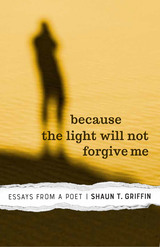
In this luminous and moving book of essays, award-winning author Shaun Griffin weaves together a poetic meditation on living meaningfully in this world. Anchored in the American West but reaching well beyond, he recounts his discoveries as a poet and devoted reader of poetry, a teacher of the disadvantaged, a friend of poets and artists, and a responsible member of the human family.
Always grounded in place, be it Nevada, South Africa, North Dakota, Spain, Zimbabwe, or Mexico, Griffin confronts the world with an openness that allows him to learn and grow from the people he meets. This is a meditation on how all of us can confront our own influences to achieve wholeness in our lives. Along with Griffin, readers will reflect on how they might respond to a homeless man walking through central Nevada, viewing the open desert as Thoreau might have viewed Walden, seeing the US-Mexico border as a region of lost identity, reconciling how poets who live west of the Hudson River find anonymity to be their laurel, and experiencing how writing poetry in prison becomes lifesaving.
Whether poets or places in the West or beyond, experiences with other cultures, or an acute awareness that poetry is the refuge of redress—all have influenced Griffin’s writing and thinking as a poet and activist in the Great Basin. The mindfulness of Because the Light Will Not Forgive Me demonstrates that even though the light does not forgive, it still reveals.


Boris Pasternak has generally been regarded as an artist who was indifferent to the literary and political storms of his time. Lazar Fleishman gives the great writer's life a new perspective. He shows that Pasternak's entire literary career should be regarded as a complex and passionate response to constant changes in Russian cultural and social life.
Drawing on a vast array of sources, Fleishman's chronicle encompasses both the familiar and the little-known aspects of the poet's life and work. He describes the formative role played by Pasternak's father, a prominent Russian painter, and the intellectual endeavors of the young man before his literary debut. He explores the intricate relations of Pasternak to the main movements of literary modernism, including symbolism and futurism.
Particularly informative are the chapters devoted to the postrevolutionary years. Fleishman untangles the poet's contacts with leading political figures (Stalin, Trotsky, Bukharin) and fellow writers (Gorky, Mayakovsky, Tsvetaeva, Akhmatova, Mandelshtam), and examines his changes in fortune during the purges and World War II. He shows how Pasternak was perceived by Western contemporaries and how significant their moral support was for him during the darkest years of Stalin's regime. He provides explanations for the Christian themes in Pasternak's later work, as well as the poet's peculiar view of Jewry. Finally, Fleishman recreates the vicissitudes of the publication of Doctor Zhivago and the ensuing Nobel Prize scandal in 1958. A fascinating description of the writer's career in broad context, this book will be welcomed by everyone interested in Pasternak and in twentieth-century literature.
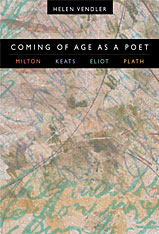
To find a personal style is, for a writer, to become adult; and to write one’s first “perfect” poem—a poem that wholly and successfully embodies that style—is to come of age as a poet. By looking at the precedents, circumstances, and artistry of the first perfect poems composed by John Milton, John Keats, T. S. Eliot, and Sylvia Plath, Coming of Age as a Poet offers rare insight into this mysterious process, and into the indispensable period of learning and experimentation that precedes such poetic achievement.
Milton’s L’Allegro, Keats’s On First Looking into Chapman’s Homer, Eliot’s The Love Song of J. Alfred Prufrock, and Plath’s The Colossus are the poems that Helen Vendler considers, exploring each as an accession to poetic confidence, mastery, and maturity. In meticulous and sympathetic readings of the poems, and with reference to earlier youthful compositions, she delineates the context and the terms of each poet’s self-discovery—and illuminates the private, intense, and ultimately heroic effort and endurance that precede the creation of any memorable poem.
With characteristic precision, authority, and grace, Vendler helps us to appreciate anew the conception and the practice of poetry, and to observe at first hand the living organism that breathes through the words of a great poem.
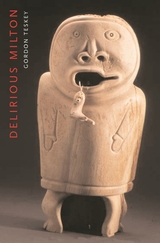

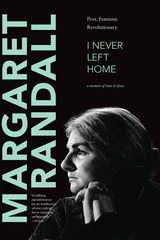
From living among New York's abstract expressionists in the mid-1950s as a young woman to working in the Nicaraguan Ministry of Culture to instill revolutionary values in the media during the Sandinista movement, the story of Randall's life reads like a Hollywood production. Along the way, she edited a bilingual literary journal in Mexico City, befriended Cuban revolutionaries, raised a family, came out as a lesbian, taught college, and wrote over 150 books. Throughout it all, Randall never wavered from her devotion to social justice.
When she returned to the United States in 1984 after living in Latin America for twenty-three years, the U.S. Immigration and Naturalization Service ordered her to be deported for her “subversive writing.” Over the next five years, and with the support of writers, entertainers, and ordinary people across the country, Randall fought to regain her citizenship, which she won in court in 1989.
As much as I Never Left Home is Randall's story, it is also the story of the communities of artists, writers, and radicals she belonged to. Randall brings to life scores of creative and courageous people on the front lines of creating a more just world. She also weaves political and social analyses and poetry into the narrative of her life. Moving, captivating, and astonishing, I Never Left Home is a remarkable story of a remarkable woman.
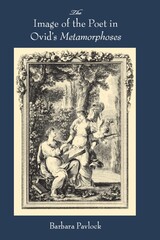
The Image of the Poet explores issues central to Ovid’s poetics—the status of the image, the generation of plots, repetition, opposition between refined and inflated epic style, the reliability of the narrative voice, and the interrelation of rhetoric and poetry. The work explores the constructed author and complements recent criticism focusing on the reader in the text.
2009 Outstanding Academic Title, Choice Magazine
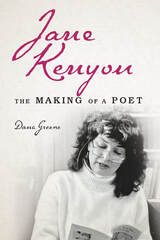
Pleasure-loving, sarcastic, stubborn, determined, erotic, deeply sad--Jane Kenyon’s complexity and contradictions found expression in luminous poems that continue to attract a passionate following. Dana Greene draws on a wealth of personal correspondence and other newly available materials to delve into the origins, achievement, and legacy of Kenyon’s poetry and separate the artist’s life story from that of her husband, the award-winning poet Donald Hall.
Impacted by relatives’ depression during her isolated childhood, Kenyon found poetry at college, where writers like Robert Bly encouraged her development. Her graduate school marriage to the middle-aged Hall and subsequent move to New Hampshire had an enormous impact on her life, moods, and creativity. Immersed in poetry, Kenyon wrote about women’s lives, nature, death, mystical experiences, and melancholy--becoming, in her own words, an “advocate of the inner life.” Her breakthrough in the 1980s brought acclaim as “a born poet” and appearances in the New Yorker and elsewhere. Yet her ongoing success and artistic growth exacerbated strains in her marriage and failed to stave off depressive episodes that sometimes left her non-functional. Refusing to live out the stereotype of the mad woman poet, Kenyon sought treatment and confronted her illness in her work and in public while redoubling her personal dedication to finding pleasure in every fleeting moment. Prestigious fellowships, high-profile events, residencies, and media interviews had propelled her career to new heights when leukemia cut her life short and left her husband the loving but flawed curator of her memory and legacy.
Revelatory and insightful, Jane Kenyon offers the first full-length biography of the elusive poet and the unquiet life that shaped her art.
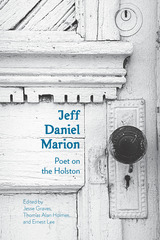
Acclaimed poet, novelist, and historian Robert Morgan writes about how Marion affected his development as a writer and the key role Marion has played in bringing Appalachian literature into its own. Scholar Randall Wilhelm’s essay, meanwhile, expands our appreciation for Marion not only as a poet but as a visual artist, tracing the connection between his photography and poetic imagery. Also included are essays by John Lang on the ways in which Marion’s poetry “gives voice to a spiritual vision of nature’s sacramental identity,” Gina Herring on how the poet’s father has served as his muse, and George Ella Lyon on the power of story in Marion’s picture book for children, Hello, Crow. Other features include an autobiographical essay by Marion himself, an interview conducted by coeditor Jesse Graves, and a bibliography and timeline that summarize Marion’s life and career.
In the book’s introduction, Ernest Lee notes that in the poem “Boundaries,” from his first published collection, the young Marion “dedicated himself to his place, to the land and his heritage . . . welcoming whatever may come with a firm faith that ultimately his life as a poetic laborer will bring him to a true, sharp vision.” The eloquent contributions to this volume reveal just how fully that dedication has paid off.
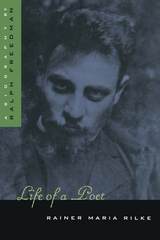
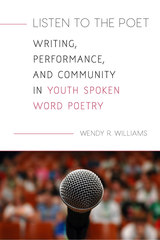
Listen to the Poet investigates two Arizona spoken word poetry groups—a community group and a high school club—that are both part of the same youth organization. Exploring the writing lives and poetry of several members, Wendy R. Williams takes readers inside a writing workshop and poetry slam and reveals that schools have much to learn about writing, performance, community, and authorship from groups like these and from youth writers themselves.

Frank Marshall Davis was a prominent poet, journalist, jazz critic, and civil rights activist on the Chicago and Atlanta scene from the 1920s through 1940s. He was an intimate of Langston Hughes and Richard Wright and an influential editor at the Chicago Evening Bulletin, the Chicago Whip, the Chicago Star, and the Atlanta World. He renounced his writing career in 1948 and moved to Hawaii, forgotten until the Black Arts Movement rediscovered him in the 1960s.
Because of his early self-exile from the literary limelight, Davis's life and work have been shrouded in mystery. Livin' the Blues offers us a chance to rediscover this talented poet and writer and stands as an important example of black autobiography, similar in form, style, and message to those of Langston Hughes and Richard Wright.
"Both a social commentary and intellectual exploration into African American life in the twentieth century."—Charles Vincent, Atlanta History
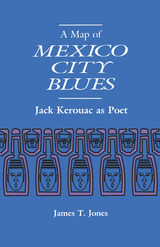
In this pioneering critical study of Jack Kerouac’s book-length poem, Mexico City Blues—apoetic parallel to the writer’s fictional saga, the Duluoz Legend—James T. Jones uses a rich and flexible neoformalist approach to argue his case for the importance of Kerouac’s rarely studied poem.
After a brief summary of Kerouac’s poetic career, Jones embarks on a thorough reading of Mexico City Blues from several different perspectives: he first focuses on Kerouac’s use of autobiography in the poem and then discusses how Kerouac’s various trips to Mexico, his conversion to Buddhism, his theory of spontaneous poetics, and his attraction to blues and jazz influenced the theme, structure, and sound of Mexico City Blues.
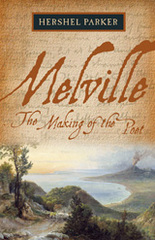
“Who would have looked for philosophy in whales, or for poetry in blubber?” the London John Bull remarked in October of 1851. And yet, the reviewer went on, “few books which professedly deal in metaphysics, or claim the parentage of the muses, contain as much true philosophy and as much genuine poetry as the tale of the Pequod's whaling expedition.” A decade and a half before surprising the world with a book of Civil war poetry, Melville was already confident of what was “poetic” in his prose. As Hershel Parker demonstrates in this book, Melville was steeped in poetry long before he called himself a poet.
Here Parker, the dean of Melville studies, gives a compelling, in-depth account of how one of America’s greatest writers grew into the vocation of a poet. His work corrects two of the most pernicious misconceptions about Melville perpetuated by earlier critics: that he repudiated fiction writing after Pierre, and that he hadn’t begun writing poetry (let alone had a book of poems ready for publication) as early as 1860. In clearing up these misapprehensions, Parker gives a thorough and thoroughly involving account of Melville’s development as a poet. Parker demonstrates for the first time just how crucial poetry was to Melville from childhood to old age, especially its re-emergence in his life after 1849. Drawing on Melville's shrewd annotations of great British poets and on his probing, skeptical engagement with commentaries on poetry (particularly by the great Scots reviewers), Parker paints a richly textured portrait of a hitherto unseen side of Herman Melville.

An engaging look at one of English history and literature’s most compelling, complicated, and talented figures, Percy Bysshe Shelley will be a valuable contribution to our understanding of the man and his work.
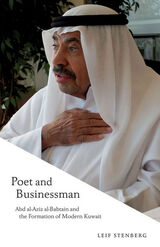
This book reviews and analyzes the modern history of Kuwait through the life of Abd al-Aziz Sa‘ud al-Babtain, a wealthy businessman, philanthropist, and poet. He is the head of a large, influential international cultural foundation based in Kuwait City. Abd al-Aziz’s life story tightly interweaves with modern discussions on the history of the state of Kuwait. There are very few books taking a collective grip on the history of the state of Kuwait. Likewise, there are very few studies about the generation of Gulf individuals who experienced, benefitted from, and even suffered from the discovery of oil, and who has been a crucial part of socioeconomic and cultural developments in countries like Kuwait in recent history. By constructing a cohesive overview of the modern history of Kuwait enriched by the life of an individual that has lived through the better part of that particular history, this book fills a lacuna in contemporary scholarship on the Middle East, and especially the Arabian or the Persian Gulf.
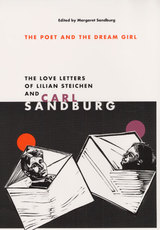

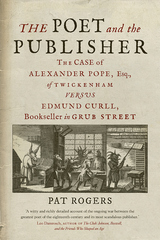
“What sets Rogers’s history apart is his ability to combine fastidious research with lucid, unpretentious prose. History buffs and literary-minded readers alike are in for a punchy, drama-filled treat.”—Publishers Weekly
The quarrel between the poet Alexander Pope and the publisher Edmund Curll has long been a notorious episode in the history of the book, when two remarkable figures with a gift for comedy and an immoderate dislike of each other clashed publicly and without restraint. However, it has never, until now, been chronicled in full. Ripe with the sights and smells of Hanoverian London, The Poet and Publisher details their vitriolic exchanges, drawing on previously unearthed pamphlets, newspaper articles, and advertisements, court and government records, and personal letters. The story of their battles in and out of print includes a poisoning, the pillory, numerous instances of fraud, and a landmark case in the history of copyright. The book is a forensic account of events both momentous and farcical, and it is indecently entertaining.
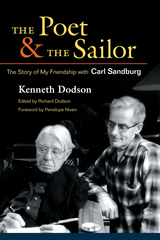
Carl Sandburg first encountered Kenneth Dodson through a letter written at sea during World War II. Though Dodson wrote the letter to his wife, Letha, Sandburg read it in tears and told her, "I've got to meet this man." Composed primarily of their correspondence that continued until Sandburg's death in 1967, The Poet and the Sailor is a chronicle of the deep friendship that followed. Ranging over anything they found important, from writing to health and humor, the letters are arranged by Richard Dodson and are accompanied by a foreword from Sandburg's noted biographer, Penelope Niven.

Taras Ševčenko (1814–1861) is the central figure in modern Ukrainian literature, but despite the enormous attention that has been devoted to his person, his work, and his role in Ukrainian history and the Ukrainian national renascence, the core of the Ševčenko phenomenon—the symbolic nature of his poetry—has received little systematic analysis.
As this book argues, myth serves as the underlying code and model of Ševčenko’s poetic universe. Examining the structures and paradigms of Ševčenko’s mythical thought provides answers for various crucial and heretofore intractable questions, such as those concerning the relation of his Ukrainian poetry to his Russian prose, his sense of a transcendent “curse” and “guilt” in the Ukrainian past and present, the interrelation of his revolutionist fervor with his apparent providentialism, or of the tension between the nativism and the universalism of his poetry.
Moreover, it is through the structures of his mythical thought that we can understand Ševčenko’s “prophecy,” in effect, his millenarian vision. In this framework, too, the author focuses on the religious tenor of Ševčenko’s poetry, in which he is both expiator and carrier of the Word, and, finally, on the reception—indeed the cult of Ševčenko among generations of Ukrainians.
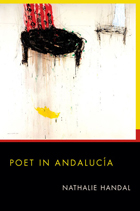
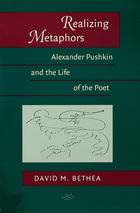
Readers often have regarded with curiosity the creative life of the poet. In this passionate and authoritative new study, David Bethea illustrates the relation between the art and life of nineteenth-century poet Alexander Pushkin, the central figure in Russian thought and culture. Bethea shows how Pushkin, on the eve of his two-hundredth birthday, still speaks to our time. He indicates how we as modern readers might "realize"— that is, not only grasp cognitively, but feel, experience—the promethean metaphors central to the poet's intensely "sculpted" life. The Pushkin who emerges from Bethea's portrait is one who, long unknown to English-language readers, closely resembles the original both psychologically and artistically.
Bethea begins by addressing the influential thinkers Freud, Bloom, Jakobson, and Lotman to show that their premises do not, by themselves, adequately account for Pushkin's psychology of creation or his version of the "life of the poet." He then proposes his own versatile model of reading, and goes on to sketches the tangled connections between Pushkin and his great compatriot, the eighteenth-century poet Gavrila Derzhavin. Pushkin simultaneously advanced toward and retreated from the shadow of his predecessor as he created notions of poet-in-history and inspiration new for his time and absolutely determinative for the tradition thereafter.

In 1968 Jim Morrison, founder and lead singer of the rock band the Doors, wrote to Wallace Fowlie, a scholar of French literature and a professor at Duke University. Morrison thanked Fowlie for producing an English translation of the complete poems of Rimbaud. He needed the translation, he said, because, "I don’t read French that easily. . . . I am a rock singer and your book travels around with me." Fourteen years later, when Fowlie first heard the music of the Doors, he recognized the influence of Rimbaud in Morrison’s lyrics.
In Rimbaud and Jim Morrison Fowlie, a master of the form of the memoir, reconstructs the lives of the two youthful poets from a personal perspective. In their twinned stories he discovers an uncanny symmetry, a pattern far richer than the simple truth that both led lives full of adventure and both made poetry of their thirst for the liberation of the self. The result is an engaging account of the connections between an exceptional French symbolist who gave up writing poetry at the age of twenty, died young, and whose poems are still avidly read to this day, and an American rock musician whose brief career ignited an entire generation and has continued to fascinate millions around the world in the twenty years since his death in Paris. In this dual portrait, Fowlie gives us a glimpse of the affinities and resemblances between European literary traditions and American rock music and youth culture in the late twentieth century.
A personal meditation on two unusual, yet emblematic, cultural figures, this book also stands as a summary of a noted scholar’s lifelong reflections on creative artists.
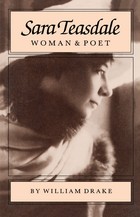
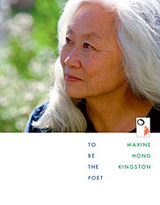
"I have almost finished my longbook," Maxine Hong Kingston declares. "Let my life as Poet begin...I won't be a workhorse anymore; I'll be a skylark." To Be the Poet is Kingston's manifesto, the avowal and declaration of a writer who has devoted a good part of her sixty years to writing prose, and who, over the course of this spirited and inspiring book, works out what the rest of her life will be, in poetry. Taking readers along with her, this celebrated writer gathers advice from her gifted contemporaries and from sages, critics, and writers whom she takes as ancestors. She consults her past, her conscience, her time--and puts together a volume at once irreverent and deeply serious, playful and practical, partaking of poetry throughout as it pursues the meaning, the possibility, and the power of the life of the poet.
A manual on inviting poetry, on conjuring the elusive muse, To Be the Poet is also a harvest of poems, from charms recollected out of childhood to bursts of eloquence, wonder, and waggish wit along the way to discovering what it is to be a poet.

This book probes the narratives of poets who are exiled, tried or executed for their satire. Aesop, fabulist and riddle warrior, is assimilated to the pharmakos—the wretched human scapegoat who is expelled from the city or killed in response to a crisis—after satirizing the Delphians.
In much the same way, Dumezil's Indo-European heroes, Starkathr and Suibhne, are both warrior-poets persecuted by patron deities. This book views the scapegoat as a group's dominant warrior, sent out to confront predators or besieging forces. Both poets and warriors specialize in madness and aggression, are necessary to society, yet dangerous to society.
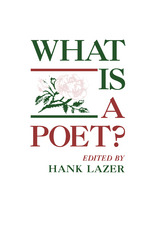
This book discusses the extent of distrust and the extent of the misunderstandings that exist in the poetry world.
READERS
Browse our collection.
PUBLISHERS
See BiblioVault's publisher services.
STUDENT SERVICES
Files for college accessibility offices.
UChicago Accessibility Resources
home | accessibility | search | about | contact us
BiblioVault ® 2001 - 2024
The University of Chicago Press









